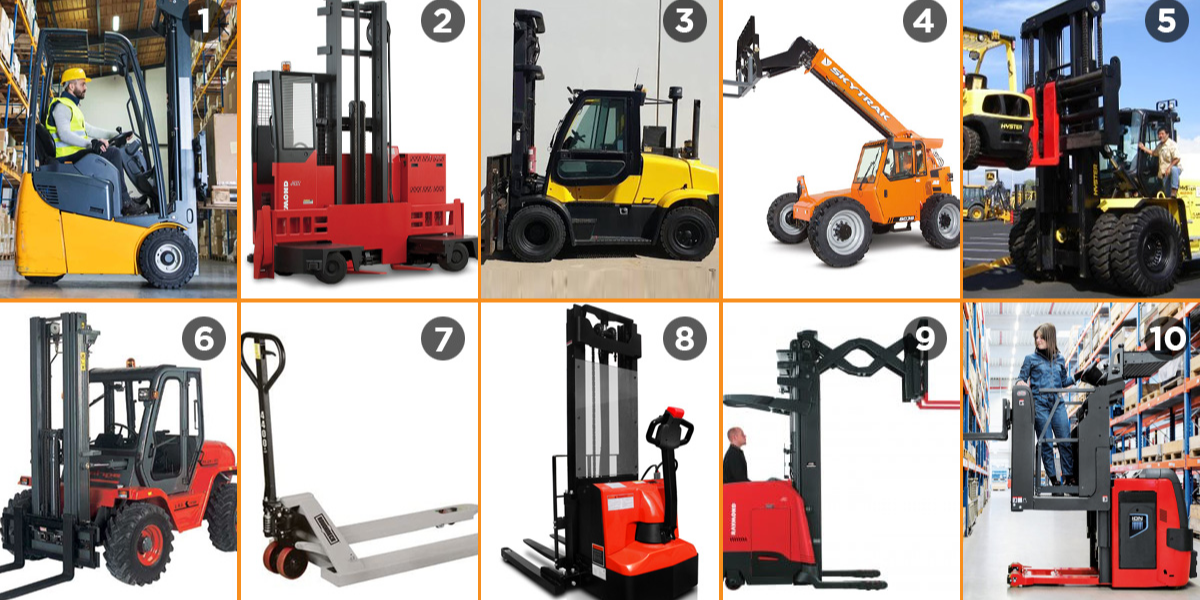
Types of Forklifts: Choosing the Right One For Your Business
As a business owner or purchasing manager, selecting the right types of forklifts is crucial for ensuring smooth operations and optimizing productivity in your warehouse or industrial setting. With numerous options available in the market, finding the perfect fit can be overwhelming. To simplify your decision-making process, we at Value Forklifts have compiled five essential tips to guide you in choosing the right forklift for your business needs.
Assess Your Operational Requirements
Before diving into the forklift selection process, take a step back and evaluate your operational requirements. Consider factors such as the weight and size of the loads you typically handle, the height to which you need to lift them, and the nature of your work environment (indoors, outdoors, rough terrain, narrow aisles, etc.). This assessment will help you determine the specific specifications and features you should prioritize in types of forklifts.
Consider Types of Forklifts
Forklifts come in various types, each designed for specific applications. The most common types include counterbalance types of forklifts, reach trucks, pallet jacks, and rough terrain forklifts. Understand the unique characteristics and advantages of each type to determine which one aligns with your operational requirements. For instance, counterbalance forklifts are versatile and suitable for general indoor and outdoor tasks, while reach trucks are ideal for high stacking and narrow aisles. We at Value Forklifts carry many of these.
Assess Load Capacity and Size
Knowing the weight and size of the loads you typically handle is vital for selecting a forklift with the appropriate load capacity. Underestimating load capacity can lead to safety hazards and equipment damage, while overestimating can result in unnecessary expenses. Additionally, consider the dimensions of your facility, such as doorways, racking heights, and aisle widths, to ensure the types of forklifts you choose can maneuver comfortably within your workspace.
Types of Forklifts: Prioritize Safety Features
Safety should be a top priority when selecting types of forklifts. Look for features such as stability mechanisms, operator visibility enhancements, ergonomic design elements, and advanced safety technologies like automatic braking systems and anti-tip control. Additionally, ensure that the forklift meets all relevant safety standards and regulations to minimize workplace accidents and ensure the well-being of your employees.
Evaluate Maintenance and Support
Owning a forklift involves ongoing maintenance and occasional repairs. Before making a purchase, evaluate the availability of spare parts, service support, and the reputation of the manufacturer or dealer. Opt for brands with a strong track record of reliability, readily available spare parts, and a responsive customer support system. Regular maintenance and prompt repairs are vital to keep your forklift operational and minimize downtime.
Save With Value Forklifts
With over 20 years of industry experience, we sell a variety of used reconditioned forklifts and maintenance vehicles that helps clients optimize product movement and storage. Our products are sold at a lower cost and are completely serviced and ready for use the moment they are received. Contact us to learn more! We also offer financing opportunities!

Great write-up! Your analysis is spot-on. For those wanting to explore more, this link is helpful: FIND OUT MORE. What are your thoughts?